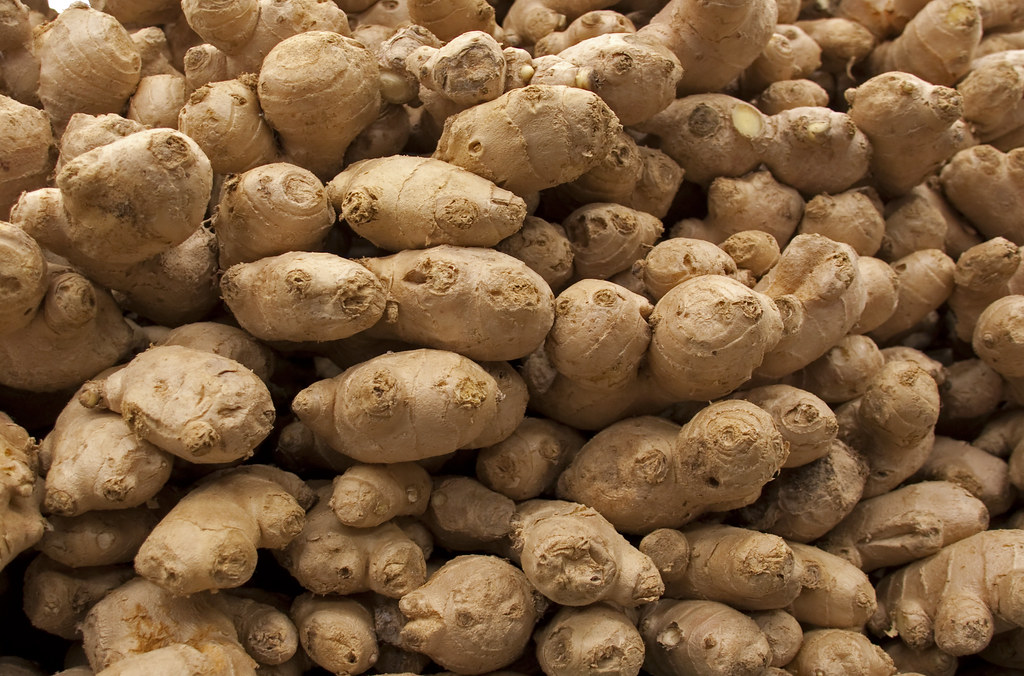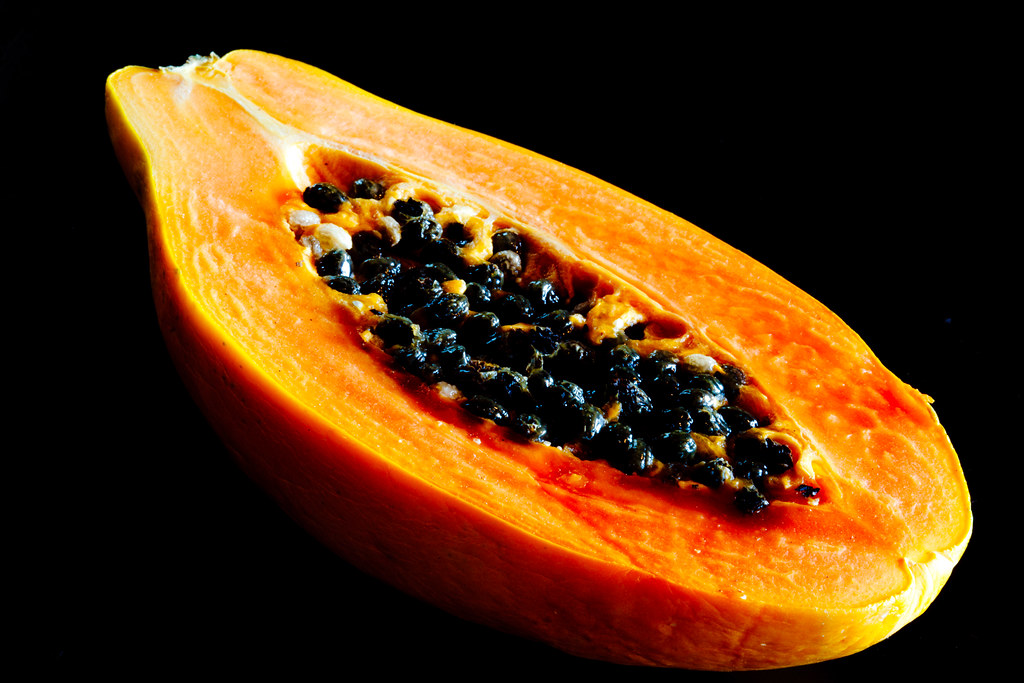
As the chill of cold and flu season settles in, it’s natural to feel a heightened sense of vulnerability. Germs can run rampant, and we often find ourselves searching for effective ways to fend off those unwelcome seasonal invaders. While there are a few different ways to fight the common cold and the flu, one of your greatest assets in this annual battle is undoubtedly your diet.
Indeed, a robust immune system stands as your body’s first line of defense against viruses and bacteria, and a well-balanced diet plays a pivotal role in supporting this crucial function. Conor Mulcahy, DO, an internal medicine doctor at Geisinger, aptly points out that “in cold weather and in dry air, it’s very easy for colds and the flu to spread.” He emphasizes that while limiting contact with sick individuals is helpful, many respiratory infections are contagious before symptoms even appear. This makes proactive strengthening of your immune system absolutely essential.
So, what’s a smart plan of action? Beyond getting a flu shot, sufficient sleep, and diligent hand washing, Dr. Mulcahy highlights the power of a healthy diet in keeping your immune system strong and helping you avoid illness. This article is your ultimate guide to harnessing that power, as we embark on a delicious and empowering journey through 15 powerful immune-boosting foods that can truly make a difference this season.

1. **Citrus Fruits**When thoughts turn to bolstering immunity, citrus fruits often leap to mind first, and for good reason! Most people instinctively reach for vitamin C after they’ve caught a cold, and this common practice is backed by solid understanding. This vital nutrient is renowned for its ability to help build up your immune system, making it a cornerstone of your cold and flu defense strategy.
The magic behind vitamin C’s immune-boosting properties lies in its role in stimulating your body’s natural defenses. Specifically, vitamin C is thought to increase the production of white blood cells, which are the frontline soldiers of your immune system. These cells are essential for identifying and fighting off infections, meaning a healthy supply of vitamin C can help ensure your body is ready for battle.
Consider oranges, mangos, and grapefruits as excellent, readily available sources of this immune-supporting vitamin. Integrating these vibrant fruits into your daily routine is an accessible way to keep your vitamin C levels topped up. Whether enjoyed fresh, in smoothies, or as a juicy addition to salads, citrus fruits offer a refreshing and potent dose of immune-enhancing goodness.
Read more about: Seriously, Where Did They Go? 12 Iconic American Foods That Vanished From Our Tables

2. **Red Bell Peppers**While citrus fruits are celebrated for their vitamin C content, many are surprised to learn that another everyday vegetable packs an even more impressive punch. Believe it or not, ounce for ounce, red bell peppers actually contain twice as much vitamin C as their citrus counterparts. This makes them an often-overlooked, yet incredibly powerful, ally in your immune-boosting diet.
“Who would have thought?” This surprising fact from the literature underscores just how many hidden nutritional treasures exist within our food choices. Leveraging the potent vitamin C in red bell peppers means you’re providing your immune system with the critical support it needs to function optimally, aiding in the increased production of infection-fighting white blood cells.
Incorporating red bell peppers into your meals is incredibly versatile. Enjoy them raw in salads or as a crunchy snack with hummus, or lightly cook them in stir-fries and roasted vegetable dishes. Keeping cooking minimal helps preserve their bountiful vitamin content, ensuring you get the maximum immune-boosting benefits from these vibrant and flavorful vegetables.
Read more about: Beyond the Boardroom: 14 Unconventional Rules Billionaires Set for Their Children
3. **Ginger**Beyond its distinctive warm and spicy flavor that enlivens countless dishes, ginger has been valued for centuries in traditional practices for its remarkable medicinal properties. This potent root is far more than just a culinary ingredient; it’s a natural powerhouse that can play a significant role in soothing discomfort and supporting your body during illness, particularly when dealing with inflammation.
One of ginger’s most celebrated benefits is its ability to help decrease inflammation throughout the body. This anti-inflammatory action is crucial, as it can aid in reducing a sore throat, which is often a painful symptom of colds and flu, along with other inflammatory diseases. By calming inflammatory responses, ginger helps alleviate discomfort and allows your body to focus its energy on recovery and defense.
To easily incorporate ginger into your wellness routine, consider brewing it into a soothing tea or adding freshly shredded ginger to soups and stir-fries. The context even hints at a delightful “Turmeric Ginger Lemonade” recipe, which highlights how combining these powerful ingredients can create a beverage designed to fight fatigue as well as inflammation. This makes ginger an excellent, flavorful addition to your immune-supportive regimen.
Read more about: Remembering the Legends: A Tribute to the Departed Stars Who Shaped ‘The Terminator’ Franchise
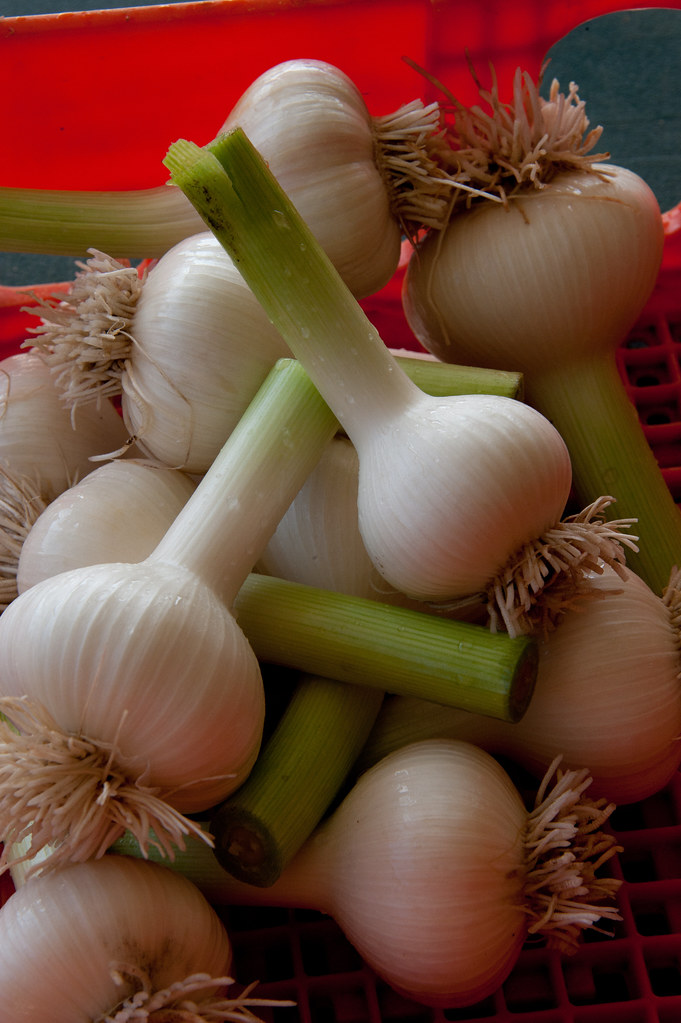
4. **Garlic**For millennia, garlic has been recognized not just as a staple seasoning but as a powerful medicinal agent. Indeed, its historical significance is undeniable, as it “was used as a home remedy for fighting infections in early civilizations.” This long-standing tradition speaks volumes about its perceived efficacy in combating various ailments, establishing its reputation as an essential natural defense.
Modern research continues to uncover the extensive health benefits of garlic, extending beyond its historical uses. While its direct role in white blood cell production isn’t explicitly detailed in the same way as vitamin C, its proven ability to fight infections positions it firmly within immune-boosting foods. Moreover, garlic may help lower blood sugar and slow down the hardening of your arteries, offering comprehensive benefits for overall cardiovascular health.
Adding garlic to your daily diet is simple and impactful. Whether you crush it into salad dressings, mince it into marinades, or sauté it as a base for almost any savory dish, its pungent flavor and health-promoting compounds integrate seamlessly. Regular consumption of garlic provides a natural, time-tested way to support your body’s resilience against illness, leveraging ancient wisdom for modern wellness.
Read more about: The 15 Most Excellent Movies: From ’84 to ’23, How Many Of These Must-Sees Have You Conquered?
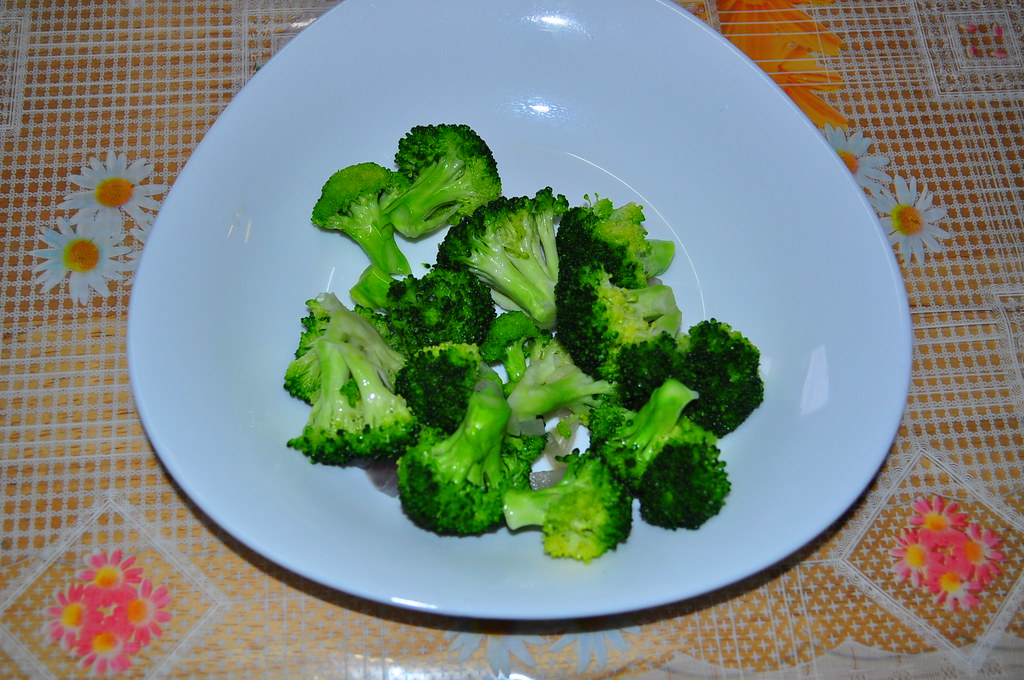
5. **Broccoli**Often hailed as a king among vegetables, broccoli lives up to its superfood status with an impressive nutritional profile that directly supports immune health. It is not just healthy; it’s “super charged with vitamins and minerals.” This vibrant green florentine is packed with a formidable array of essential nutrients, including significant amounts of vitamins A, C, and E, alongside loads of powerful antioxidants.
Each of these vitamins plays a distinct yet collaborative role in bolstering your immune system. Vitamin A contributes to the health of your mucous membranes, which are a first line of defense; vitamin C, as we’ve discussed, enhances white blood cell production; and vitamin E acts as a crucial antioxidant, protecting cells from damage. The antioxidants in broccoli further safeguard your body at a cellular level, helping to combat oxidative stress and maintain optimal immune function.
To truly unlock broccoli’s full nutritional potential, how you prepare it matters. The literature emphasizes that “broccoli has the most nutritional benefits when it is less cooked.” This suggests that steaming it lightly, quick stir-frying, or even enjoying it raw in salads will help preserve its delicate vitamins and enzymes, ensuring you receive the maximum immune-boosting goodness with every bite.
Read more about: Beyond the Bulk: Chris Hemsworth’s Real Health Journey and the Truth About ‘Harmless’ Supplements
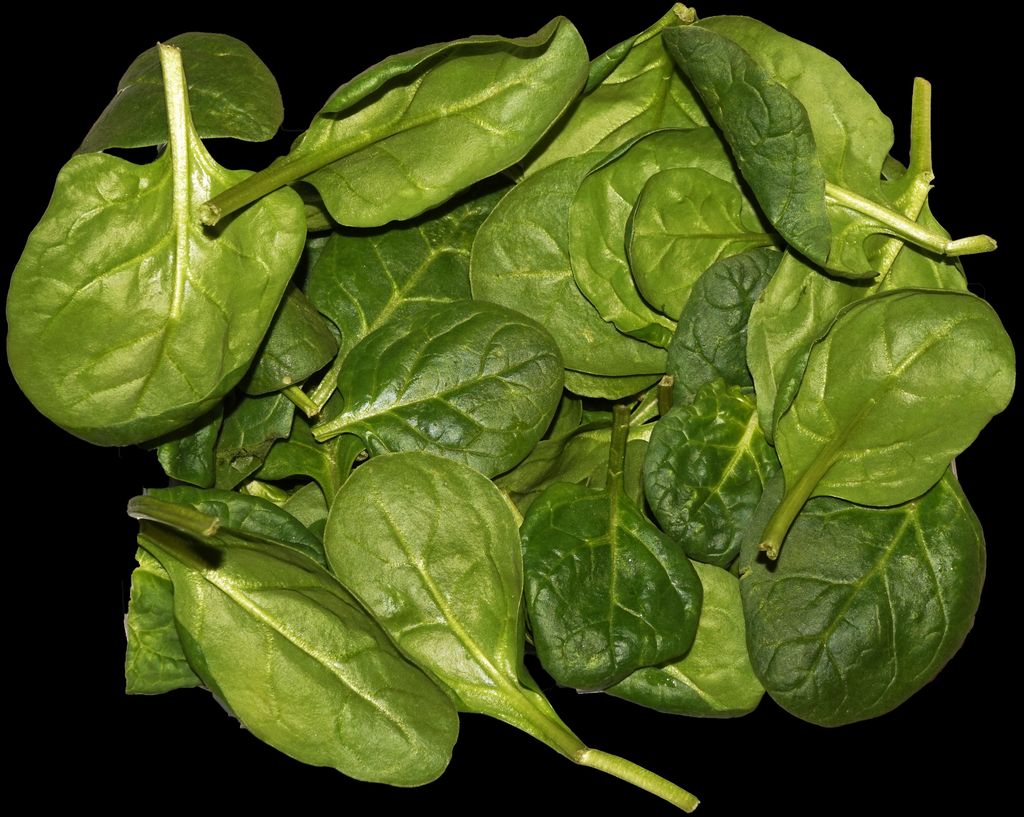
6. **Spinach**Another leafy green powerhouse, spinach, stands shoulder-to-shoulder with broccoli as an indispensable food for enhancing your immune system. Like many other superfoods, it is “packed with vitamin C,” providing a direct boost to your white blood cells. But spinach’s immune-supporting credentials extend even further, thanks to its rich composition of numerous antioxidants and beta-carotene.
Beta-carotene, a precursor to vitamin A, is particularly noteworthy for its role in immunity. It “may increase the infection-fighting ability of our immune systems,” helping to strengthen your body’s defenses against pathogens. The collective action of vitamin C, antioxidants, and beta-carotene makes spinach a formidable force in your quest for robust health, especially during peak cold and flu season.
Just like its cruciferous cousin, broccoli, the preparation of spinach is key to maximizing its benefits. The guidance states that “spinach has the most effect, when it is less cooked.” This means opting for raw spinach in smoothies or salads, or giving it a very quick sauté or steam, will help retain its heat-sensitive vitamins and phytonutrients. Making spinach a regular part of your meals is an easy and effective step towards a stronger, more resilient immune system.
Read more about: Banned from the Big Screen: Iconic Moments That Sparked Outrage and Censor’s Fury
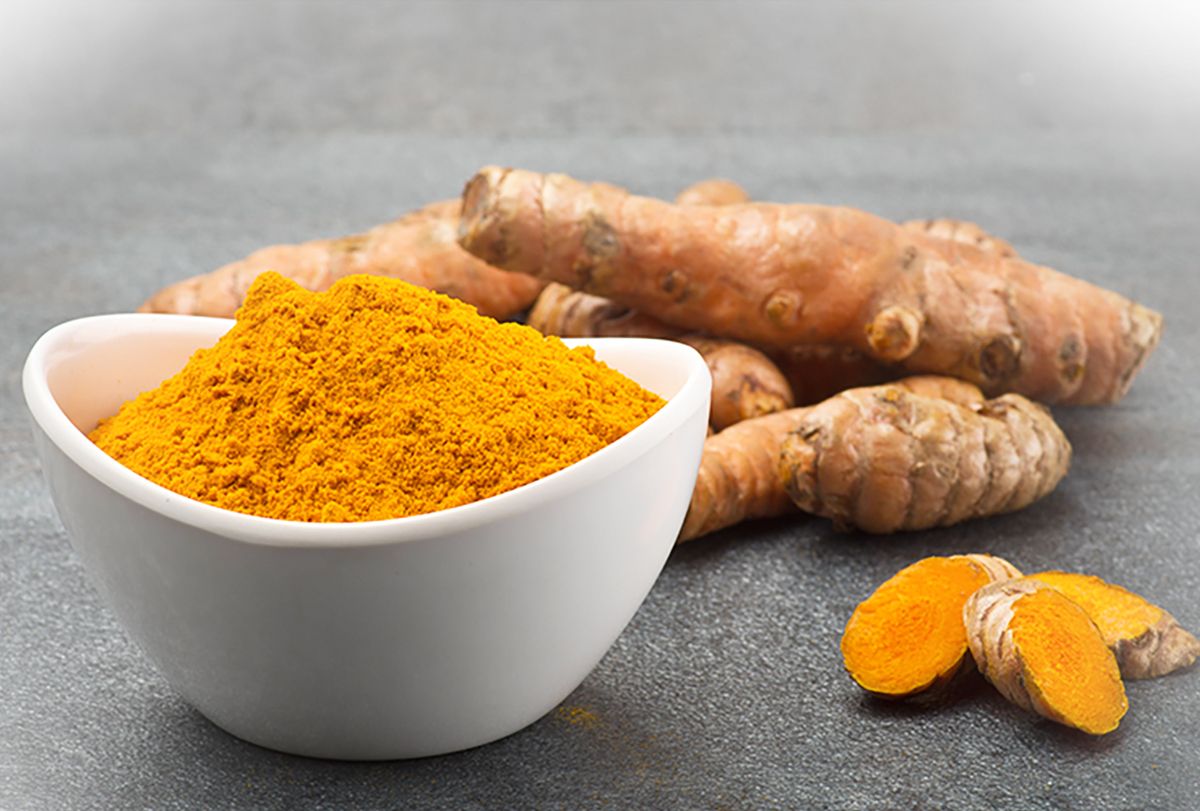
7. **Turmeric**Known primarily for its brilliant golden hue and earthy flavor that defines many curries, turmeric is much more than just a culinary spice. This ancient root has a long and esteemed history in traditional medicine, where it “has been used for years as an anti-inflammatory for treating arthritis.” Its powerful anti-inflammatory properties are central to its role as an immune-supportive food.
Inflammation, while a natural part of the immune response, can become problematic when chronic or excessive. By helping to modulate inflammatory processes, turmeric indirectly supports overall immune health, allowing your immune system to function more efficiently without being bogged down by unnecessary inflammation. This makes it a valuable addition to your diet for general well-being and targeted immune support.
Integrating turmeric into your diet is straightforward. Beyond curries, you can add turmeric powder to soups, stews, or even smoothies. Recalling the “Turmeric Ginger Lemonade” from our context, it’s clear that combining turmeric with other beneficial ingredients like ginger and lemon can create a potent brew. This tangy and health-packed drink leverages turmeric’s natural properties to fight inflammation and contribute to your immune resilience.
Now that we’ve established a strong foundation with the first seven immune-boosting powerhouses, let’s continue building your defense strategy. In ‘Part 2: Expanding Your Immune Arsenal – Unveiling 8 More Essential Foods for a Resilient Immune System,’ we’ll introduce you to eight additional foods that can significantly enhance your body’s ability to ward off illness. Get ready to discover how these delicious and nutritious additions can further fortify your health this season!
Read more about: I Tried the Most Popular Protein Bars — Here’s a Deep Dive into the Best and What to Consider for Your Goals
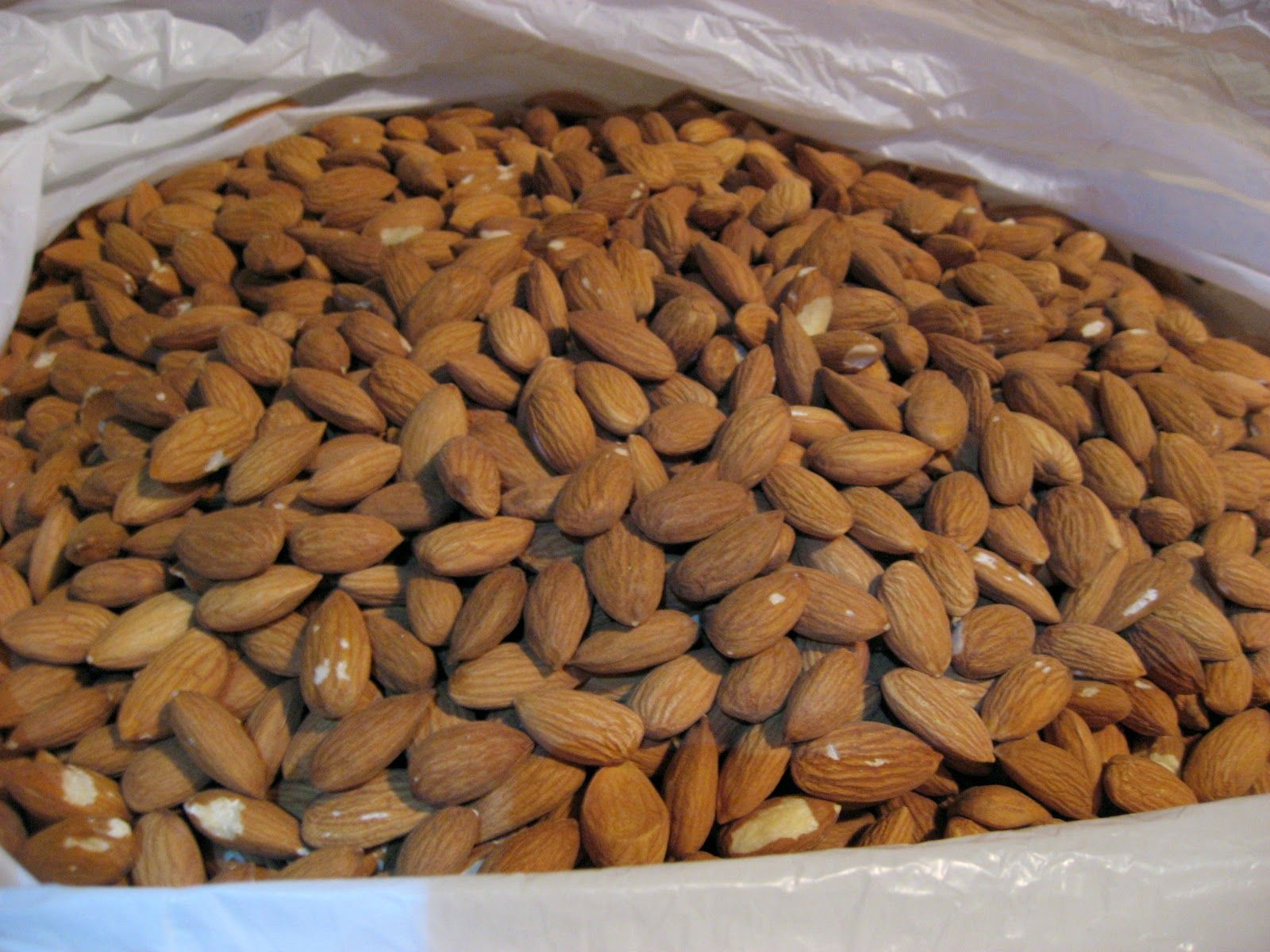
8. **Almonds**Almonds are much more than just a satisfying snack; they are a nutritional treasure trove, particularly when it comes to fortifying your immune system. These crunchy nuts are famously “loaded with vitamin E” and a compelling array of other beneficial components that are crucial for maintaining overall health and resilience against illness. Making them a regular part of your diet is a simple, yet powerful step towards better health.
While vitamin C often receives the spotlight for its direct immune-boosting prowess, vitamin E plays an equally vital role in keeping your immune system healthy and functioning optimally. Although it “isn’t as important to a strong immune system as vitamin C,” it is “still needed to keep your immune system healthy” by acting as a powerful antioxidant. A convenient “half-cup serving of almonds provides almost 100 % of the recommended daily amount of vitamin E,” making it an exceptionally efficient source.
Beyond their significant vitamin E content, almonds are packed with a diverse range of essential nutrients, including protein, calcium, phosphorus, iron, magnesium, selenium, copper, and niacin. This impressive nutritional profile ensures that “compared to all other nuts, they are richer in nutrients and beneficial components,” offering a truly comprehensive boost to your overall well-being. These synergistic nutrients work together to support various bodily functions, including cellular protection and energy production.
Integrating almonds into your daily routine is delightfully simple and versatile. You can enjoy a handful as a quick, energizing snack to ward off mid-day slumps, sprinkle them generously over your morning Greek yogurt or oatmeal for added crunch and nutrition, or incorporate them into salads for a satisfying texture. These versatile nuts are a delicious and effective way to help fortify your body’s natural defenses and sustain your energy.
Read more about: California’s Evolving Landscape: A Deep Dive into the State’s Economic Drivers, Environmental Stewardship, and Capacity for Progressive Local Governance

9. **Yogurt**When we talk about supporting your immune system, we often think of vitamins, but the health of your gut plays a surprisingly central role. This is where yogurt, especially varieties containing “live and active cultures,” truly shines as an immune-boosting food. These beneficial bacteria are key to fostering a healthy gut microbiome, which in turn, is directly “linked to a strong immune system.”
The “live and active cultures” found in certain yogurts, particularly like Greek yogurt, are not just good for digestion. They “may stimulate your immune system to help fight diseases,” acting as crucial allies in your body’s defense against pathogens. This stimulation helps ensure that your immune cells are alert and ready to respond when faced with unwelcome invaders, providing a proactive layer of protection.
Beyond their probiotic benefits, many yogurts also offer the added advantage of protein, which is essential for tissue repair and the production of immune cells. Choosing yogurts with these active cultures means you’re not only nourishing your gut but also providing your body with vital building blocks for robust immune function. It’s a delicious way to multitask for your health.
To harness these benefits, look for labels that explicitly state the presence of “live and active cultures” and consider incorporating probiotic-rich foods like yogurt, alongside kefir and sauerkraut, into your daily diet. Whether enjoyed plain, with berries, or as a base for smoothies, yogurt is an accessible and delicious strategy to “support the balance of beneficial bacteria in your gut” and enhance your overall immune resilience.
Read more about: Beyond the Bulk: Chris Hemsworth’s Real Health Journey and the Truth About ‘Harmless’ Supplements
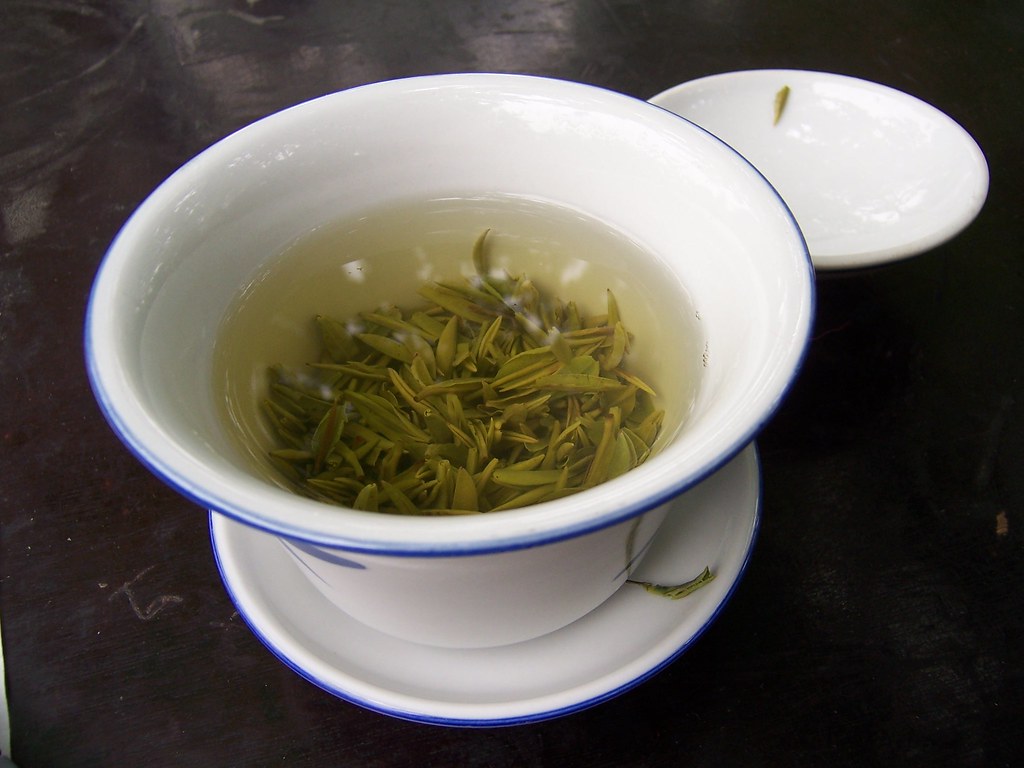
10. **Green Tea**For thousands of years, green tea has been revered not only as a comforting beverage but also as a form of natural medicine, a testament to its profound health benefits. As Dr. Mulcahy explains, “One of the reasons researchers think it’s so good for you is because it contains a substance known as catechin, which helps maintain your immune system, as well as a powerful antioxidant.” This makes green tea an ancient secret weapon for modern wellness.
Both green and black tea are rich in flavonoids, a powerful type of antioxidant that plays a crucial role in protecting your cells from damage. These antioxidants work tirelessly to combat oxidative stress in the body, which can otherwise weaken immune responses. By maintaining cellular health, green tea directly supports the integrity and efficiency of your immune system, helping it function at its best.
The catechins in green tea are particularly noteworthy for their specific actions in immune maintenance. These compounds have been the subject of extensive research, with studies exploring their “antiviral activity” and their potential in “prophylaxis and treatment” of various infections. This scientific backing reinforces green tea’s long-held reputation as a health-promoting elixir.
Integrating green tea into your daily routine is simple and enjoyable. While a hot cup of green tea is a classic and soothing choice, you can also blend it into healthy fruit and vegetable smoothies for a refreshing, nutrient-packed boost. This versatility allows you to easily incorporate its immune-supporting benefits, whether you prefer it warm or chilled, helping you feel your best.
Read more about: Green Thumbs Not Required: 12 Houseplants That Thrive on Neglect, According to the Experts

11. **Poultry**When you’re seeking to bolster your immune system, don’t overlook the power of lean proteins like poultry. Chicken and turkey, for instance, are not only versatile culinary staples but are also excellent sources of vital nutrients, particularly “high in vitamin B-6.” This essential vitamin plays a pivotal, though often understated, role in supporting your body’s natural defenses.
Vitamin B-6 is critical for numerous biochemical reactions in the body, including the production of immune cells and antibodies. These components are the frontline defenders against pathogens, and a sufficient supply of B-6 ensures your immune system has the resources it needs to function effectively. The context highlights the importance of this vitamin for health professionals, underscoring its broad significance.
Just “about 3 ounces of light turkey or chicken meat contains 40 to 50 percent of your daily-recommended amount of B-6.” This makes poultry a highly efficient way to meet a significant portion of your daily vitamin B-6 needs through a single serving. Opting for lean cuts of poultry can contribute to a balanced diet without excess unhealthy fats.
Incorporating poultry into your meals is easy and adaptable. Whether you’re grilling chicken breasts for a salad, roasting turkey for a hearty dinner, or adding shredded chicken to soups and stir-fries, these lean proteins provide essential B-6 to keep your immune system robust. By including them, you’re making a delicious choice that actively empowers your body’s ability to stay healthy through cold and flu season.
Read more about: The 14 Sneaky Storage Slip-Ups Costing You Big: Your Essential Guide to Smarter Food Preservation and Less Waste
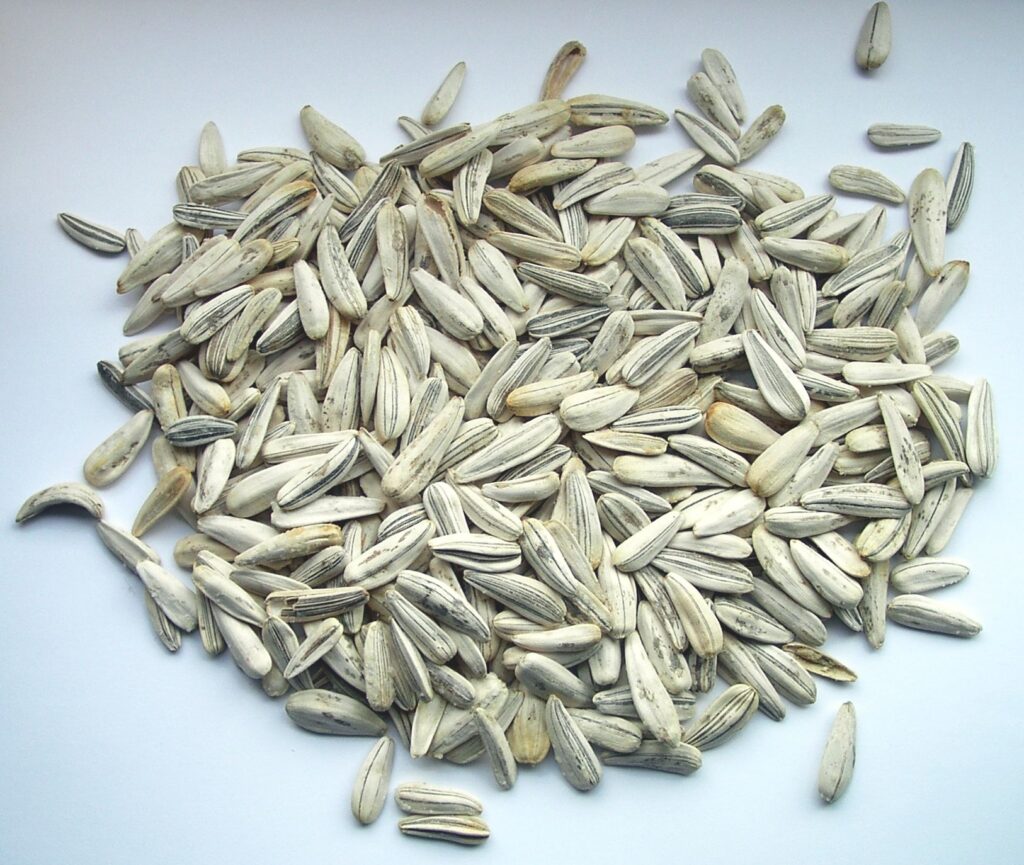
12. **Sunflower Seeds**Tiny yet mighty, sunflower seeds are miniature powerhouses of nutrition, offering a concentrated dose of immune-boosting compounds. These humble seeds are “full of nutrients, including phosphorus, magnesium, and vitamin B-6, and super filled with vitamin E.” This impressive array of vitamins and minerals makes them an invaluable addition to your immune-supportive diet.
Phosphorus and magnesium are essential minerals involved in hundreds of bodily functions, including energy production and nerve function, which indirectly support overall vitality and immune response. Vitamin B-6, as discussed with poultry, is crucial for immune cell development. However, it’s the exceptionally high content of vitamin E that truly elevates sunflower seeds to immune-superstar status.
Just like almonds, the vitamin E in sunflower seeds acts as a powerful antioxidant, protecting your cells from damage caused by free radicals. This cellular protection is fundamental for maintaining the integrity and function of your immune system. By safeguarding cells, vitamin E helps ensure that your immune defenders are robust and ready to act against threats.
Adding sunflower seeds to your meals is incredibly easy and adds a delightful crunch. Sprinkle them over salads, mix them into yogurt or oatmeal, or enjoy them by the handful as a nutritious snack. They can also be incorporated into baked goods or used as a topping for roasted vegetables, ensuring you get a consistent dose of these vital immune-enhancing nutrients throughout the season.
Read more about: From Modest Beginnings to Digital Dominance: The Billion-Download Empire of Talking Tom & Friends
13. **Papaya**Beyond its tropical sweetness and vibrant color, papaya stands out as an exceptional fruit for immune support, particularly due to its astonishing vitamin C content. If you’re looking to dramatically boost your intake, “papaya is another fruit loaded with vitamin C,” and incredibly, “you can find 224 percent of the daily-recommended amount of vitamin C in a single papaya.” This makes it an immune-boosting champion.
This abundant vitamin C is crucial for stimulating the production of white blood cells, which are your body’s primary defense against infections. A high intake of vitamin C, as provided by papaya, ensures your immune system is well-equipped to detect and neutralize viruses and bacteria, keeping you protected during cold and flu season. The scientific literature also highlights “comprehensive assessment of antioxidant and anti-inflammatory properties of papaya extracts,” further confirming its benefits.
But papaya’s benefits don’t stop there. It also contains a unique digestive enzyme called papain, which “has anti-inflammatory effects.” Inflammation, while a natural immune response, can become detrimental if chronic. Papain helps to modulate inflammatory processes, aiding in reducing discomfort and supporting a more balanced immune system, as underscored by studies on “anti-inflammatory and immunomodulatory properties of carica papaya.”
Incorporating papaya into your diet is a delicious and effortless endeavor. Enjoy fresh slices as a snack, blend it into smoothies for a creamy, immune-packed beverage, or add it to fruit salads. Its natural sweetness and powerful nutrients make papaya a delightful and effective way to fortify your body’s defenses and combat inflammation, making you feel invigorated and resilient.
Read more about: Seriously, Where Did They Go? 12 Iconic American Foods That Vanished From Our Tables

14. **Kiwi**For a small, fuzzy fruit, kiwis pack an incredibly powerful punch when it comes to supporting your immune system. If you’re seeking “an even bigger dose of vitamin C,” kiwis are an excellent choice, as they are “loaded with vitamin C and antioxidants.” This makes them a stellar addition to your cold and flu season defense.
Just like papayas, “kiwis are naturally full of a ton of essential nutrients, including folate, potassium, vitamin K, and vitamin C.” Each of these plays a significant role in maintaining overall health, with vitamin C taking the lead in immune function. It actively “boosts white blood cells to fight infection,” ensuring your body’s defense mechanisms are operating at peak efficiency.
The synergistic action of kiwi’s diverse nutrient profile means that “kiwi’s other nutrients keep the rest of your body functioning properly.” Folate, for example, is vital for cell growth and DNA synthesis, while potassium supports nerve and muscle function, and vitamin K is crucial for blood clotting. These combined benefits contribute to a strong, well-functioning body, better able to fend off illness.
Adding kiwis to your diet is both simple and refreshing. Enjoy them peeled and sliced on their own, toss them into a fruit salad for a burst of flavor, or blend them into your favorite smoothies for an extra nutritional boost. Their unique tangy-sweet taste and impressive nutrient density make kiwis a delightful and highly effective way to keep your immune system strong and your body thriving.
Read more about: A Royal Rollercoaster: Prince Harry’s Whirlwind Return to the U.K. Sparks Major Speculation and Family Drama!
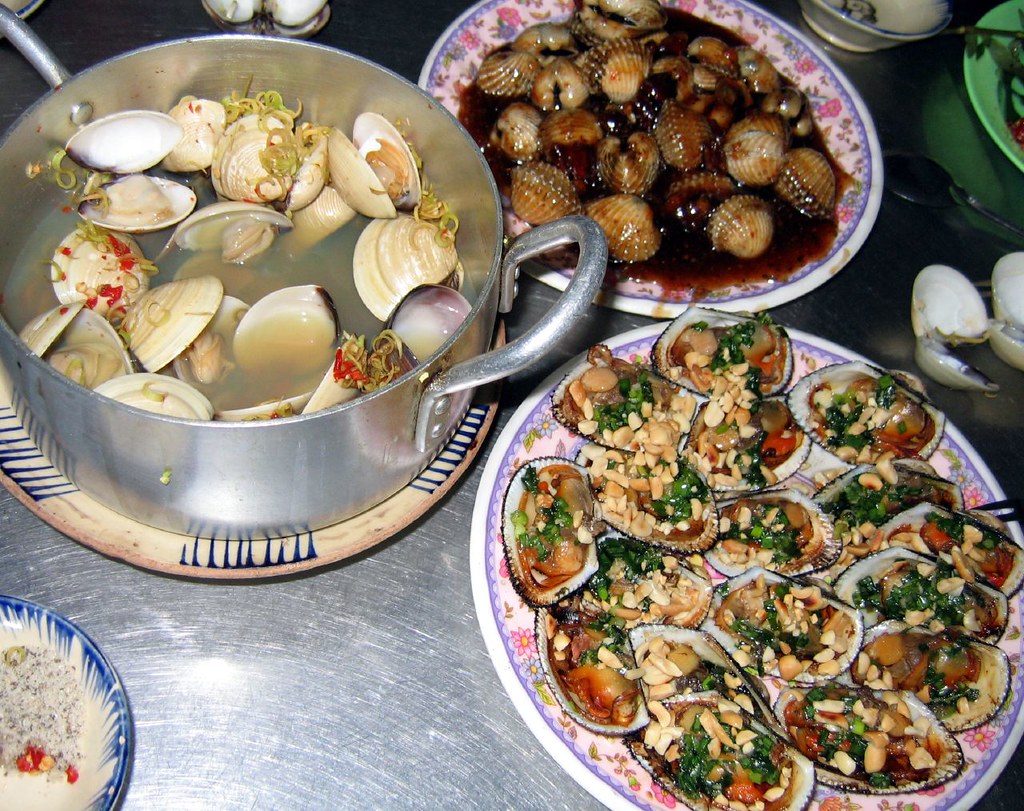
15. **Shellfish**While often overlooked in discussions of immune-boosting foods, certain shellfish varieties offer a crucial nutrient that is absolutely vital for immune health: zinc. “Shellfish such as clams, crab, lobster, and mussels are loaded with zinc,” a mineral that our bodies specifically “need, so that our immune cells can function as intended.”
Zinc is an indispensable trace mineral involved in countless enzymatic reactions throughout the body, many of which are directly related to immune function. It plays a critical role in the development and function of various immune cells, including T-cells and natural killer cells, which are essential for identifying and eliminating infected cells. Without adequate zinc, your immune response can be significantly compromised.
The importance of zinc is well-documented, with scientific resources providing “fact sheets for consumers” emphasizing its necessity for overall health. Ensuring a sufficient intake of zinc is a proactive step in maintaining a robust immune system, allowing your body’s defenses to operate with precision and efficacy against seasonal threats.
Incorporating shellfish into your diet can be a delicious way to boost your zinc levels. Whether steamed clams, grilled crab, baked lobster, or sautéed mussels, these aquatic delights offer a savory and nutrient-rich option. For those who enjoy seafood, making shellfish a regular part of your meals can provide a targeted nutritional advantage, helping your immune cells perform their critical function and keep you healthy all season long.
—
**Empowering Your Immunity: A Holistic Path to Wellness**
As we’ve explored these 15 incredible foods, it’s clear that your plate is a powerful tool in supporting a resilient immune system. From the vitamin C in citrus and papayas to the anti-inflammatory properties of ginger and turmeric, and the vital zinc in shellfish, nature truly provides a remarkable arsenal to help you stay healthy during cold and flu season.
However, true immune strength flourishes within a holistic approach to well-being. Beyond packing your plate with these immune-boosting foods, remember that your daily habits are equally influential. Prioritize “getting enough rest” and “exercising regularly” to keep your body vibrant and strong.
Diligence in “washing your hands often” and staying “current with recommended vaccines” are foundational practices to reduce exposure and fortify your defenses. Crucially, developing effective “stress management skills” is vital, as chronic stress can undermine even the most diligent efforts to maintain a healthy immune system.
Read more about: Unlocking the Emerald City: Your Ultimate Guide to Seattle’s Most Incredible Experiences
Embrace these evidence-based strategies to empower your immune system, ensuring it is well-prepared to face the challenges of the season. By integrating a nutrient-rich diet with quality sleep, consistent physical movement, good hygiene, and stress reduction, you’re not just avoiding illness; you’re cultivating a vibrant, resilient, and empowered you, ready to thrive all season long. Remember, a balanced approach is your best defense.

